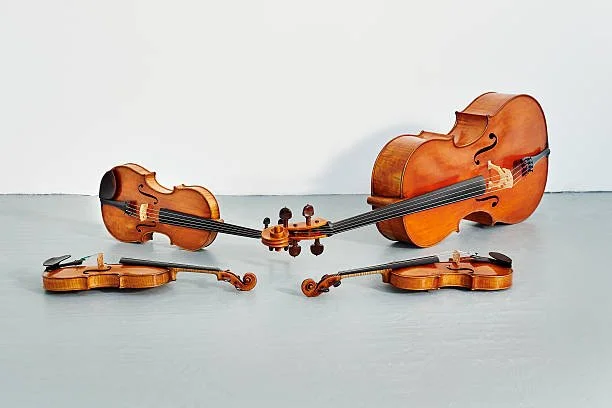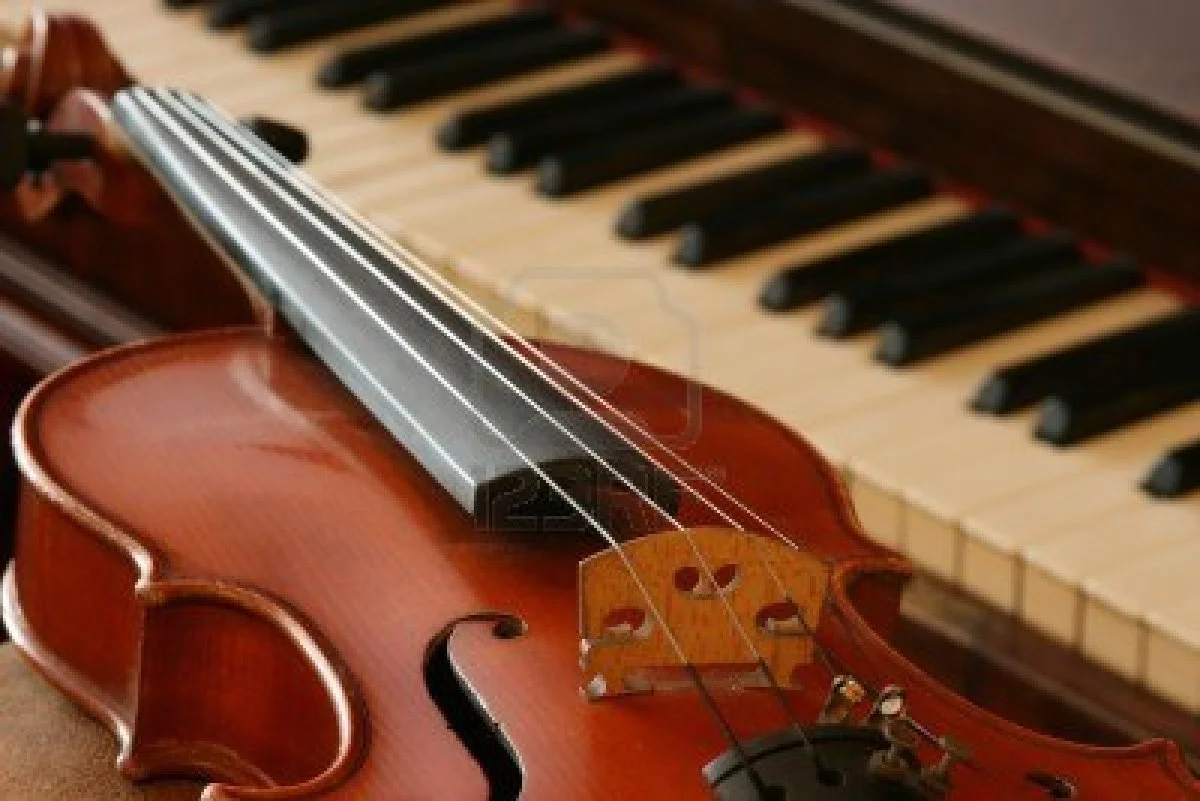Just another brief note here. As you can tell, I’ve been doing some cleanup around here. The page for the quintet had some problems and I’ve fixed them and added a video to boot. The mix is new and should sound more natural. So if you haven’t visit the page (and especially if you have) it’s right here.
New Video of Acellorimba
In early July, there was a fine performance of one of my older pieces: Acellorimba for cello and marimba. The performers were:
Karen Kaderavek - cello. This piece was written for Karen, along with Nancy Zeltsman. They gave the original performance in 1985
Sebastian Buhts - marimba. Sebastian is a rising star on marimba and I’m delighted he’s part of this performance.
We’re fortunate that there was a nice video capture, along with an audio recording. So you can now enjoy a summer moment in upstate New York. To learn more about the piece, please visit its page.
2023 performance of Acellorimba by Michael Carnes. Performers are Karen Kaderavek and Sebastian Buhts.
Then: for those who are no more
This is a sort of memento mori, written in 2021 during the still-growing wave of Covid. My original intention was to write a sort of memorial piece for those who had been taken by this disease. But I expanded it to take note of all the dead everywhere: all who had once lived but are no more. The only thing stranger than death may be life itself. There is a time in life when we experience the world as ourselves. We think what we think, see what we see, and experience a panoply of emotions.
At death, that all ends. But we still live in a more indirect way in the thoughts and memories of those who knew us. But in time they pass, and perhaps we still appear in family histories with an even dimmer glow. And at some point that’s gone as well. But all of us, present and past, are likely to have some recollection of a time we were most alive. We think of that as Then.
This piece has not yet received a performance, but I hope that changes before long. For now, you’re welcome to listen to a high-quality digital rendering
Moments: A Short Suite for Violin and Piano
Early in 2021, the Covid pandemic was raging across the world. I’d retired just a few months before and was finally able to resume serious composition. This is the first piece that came from that time and contains some of the feelings possibly shared by a great many of us.
The movements are as follows:
You’re It - A little game of close tag. The violin and piano are never far apart, but are each playing their own bits of music. At the very end, they team up for one short jazzy line. At the time, my granddaughter—quite young — would invite me outdoors to play tag. There wasn’t that much room to play, so the matches usually dissolved into giggles.
PriorityThread - perhaps a more familiar sort allegro, at least externally. There’s fast passage work that covers a fairly dramatic range. The instruments jump rapidly back and forth between lead and supporting roles—each taking brief priority. Perhaps they were feeling a little cooped up. I know I was.
A Moment for Mon - We all felt loss during this period. We still do. My mother—already dealing with the encumbrances of real old age —was stricken by the Covid virus. She received excellent, skilled and loving care and appeared to be improving. Then, in just a matter of hours, she was gone. There is no way to know how her last moment felt, but perhaps it was a little like this.
I hope that I’ll be able to share a live recording of this piece some time in the next year or so. But for now, I hope this rendering gives you a sense of the piece.
20 years on: Updating a symphony
In 2003 the New England Philharmonic, under the baton of Richard Pittman gave the premiere of my symphony Challenger. I only had a fragment of that performance here on the website, since I didn’t have clear permission to post the whole thing.
I’d long felt the piece needed a few revisions and corrections, but it took until my years of retirement that I could take that on. That’s now accomplished and you can hear the entire piece here The performance uses a virtual orchestra, but one that is a considerable step forward. Most of the corrections involve only some small changes in orchestration. A few allow the piece to spread out just a little.
There’s one additional significant change: a dedication. The piece originally bore no dedication, but it now gives thanks to Richard Pittman. Here’s what the score says:
When I began school at Berklee in 1975, I'd already been a working guitarist for several years. But I'd reached a crossroads and knew there was much more to learn--both on the guitar and about music in general. I quickly found a home-away-from-school in Jordan Hall, the principal concert space of New England Conservatory. Quite a few of those concerts were conducted by a young Richard Pittman. While the ensembles were always good to begin with, Pittman brought out that little something extra. I began to get a sense of what 500 years of musical culture really meant. It didn't take me long to know I wouldn't be going out on the road again.
As it turns out, Pittman had a much larger profile in the Boston area, most notably with Boston Musica Viva, the New England Philharmonic and the Concord Orchestra. I began to have pieces played around the area, but never had the chance to really sit down with him. Life was busy. Finally, the New England Philharmonic decided to perform Challenger. I was excited to work with someone who'd been such a part of those formative years. Dick (as he insisted on being called) was convivial, humble, and knew the piece inside-out.
The Philharmonic is comprised of a few full-time professionals and a larger proportion of well- trained musicians who'd decided to pursue other ways of making a living. They were hard-working and fearless (new music was a staple with this group). I remain deeply appreciative of the many weeks they put into this piece. It was a gutsy first performance.
I came back to the piece in 2023, although I'd been thinking about it much longer. It needed some revisions and clarifications. While it did not have a dedication in 2003, it was obvious that Dick Pittman should be recognized. He suffered a major stroke in 2020 and it's likely that he'll not lift a baton again. But his influence on generations of musicians in Boston is significant and will carry on down the years.
Please give yourselves 13 minutes to listen to the piece.
A Morsel to Share
Whew! It’s been quite a while since I’ve posted here. Life’s been busy in so many ways. I’ll post more about some of those things soon, but for now here’s a little something for your ears.
In 2003, my symphony Challenger was performed by the New England Philharmonic in Boston. Only a few months later, I found myself in a new home here in Utah. After the boxes were unpacked I began work on a companion piece of sorts. It used the same tone row, but I intentionally used the row in such a way as to hint (sometimes strongly) at tonality. Whereas Challenger is often dark, this piece is playful. I got it sketched out pretty well, but then had to set it aside as my technology career began to intrude even more deeply.
After I retired, I found the piece and decided to finish it. The result was a short and highly kinetic orchestral scherzo. I named it Not Quite Yet, which was something my then 3-year-old granddaughter loved to say. The piece is, of course, dedicated to her. I created a mock-up, using some quite excellent sound libraries. Perhaps it will find its way on stage at some time, but for now you can listen to it here.
I hope you enjoy it and I promise to be back soon.
Michael Carnes Scores for Free
Announcing the free score store!
Read MoreWelcome!
What’s this news feed all about?
Read More

